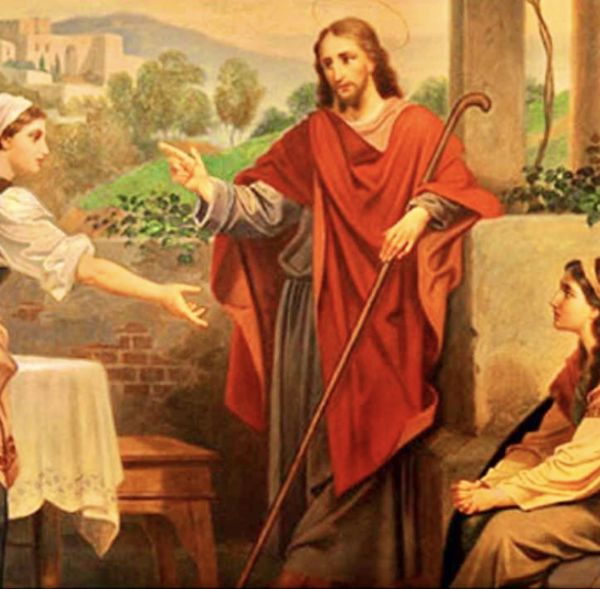Francis of Assisi, the Knower and the Least of God, always had clear in his conscience the importance and necessity of the contemplative life, tempered by work that keeps idleness at bay and conforms to Christ. He demanded this for himself and for his brothers. He went so far as to say that serving his brothers was worth more than any stay in the hermitages, where he himself loved to go when he could.
We read in his writings: "And I worked with my own hands, and I want to work; and I firmly want all the other brothers to work as befits honesty. Those who do not know, let them learn, not for the greed of receiving the reward of work, but to set an example and keep idleness at bay" (FF 119).
Furthermore: "We are convinced that [...] those who live differently in hermitages have been reproached a great deal. Many, in fact, transform the place of contemplation into idleness and the hermit's way of life, instituted to allow souls perfection, reduces it to a place of pleasure [...] Certainly this reproach is not for everyone. We know that there are saints [...] who follow excellent laws in the hermitage" (FF 765).
Even among the friars there was discussion about whether to live in contemplation or action, in fact in the Major Legend it is written:
"While, firm in their holy purpose, they faced the Spoletana valley, they began to discuss whether they should spend their lives among the people or dwell in solitary places.
But Francis, the servant of Christ, not trusting in his own experience or that of his own, entrusted himself to prayer, to insistently seek what the disposition of the divine will was on this point.
He was thus enlightened with an answer from Heaven and understood that he had been sent by the Lord for this purpose: to win souls for Christ [...] And so he chose to live for all, rather than for himself alone, spurred on by the example of the One who deigned to die, He alone, for all men" (FF1066).
But love for prayer and listening to the Word always accompanied his actions and those of his brothers.
"The tireless dedication to prayer [...] had brought the man of God to such clarity of spirit that [...] he scrutinised the depths of the Scriptures with a clear and acute intellect. He read the sacred books and kept tenaciously imprinted in his memory what he had once assimilated: for he continually ruminated with affectionate devotion what he had listened to with an attentive mind" (FF1187).
Transformed into prayer, without failing in service:
Francis had a special predilection for the Word of God, and in him, without failing in the services to be rendered to his neighbour, he always gave priority to listening to what the Lord asked or taught, fixing it well in his mind.
He had chosen the good part that no one could take away from him.
Indeed, the Sources instruct us in this regard:
"He spent all his time in holy recollection in order to imprint Wisdom in his heart; he feared to turn back if he did not always make progress.
And if at times there were urgent visits from seculars or other matters, he would cut them off rather than finish them, to take refuge again in contemplation [...].
He was always looking for a secluded place, where he could unite himself not only with his spirit, but with his individual limbs to his God" (FF 681).
"Often without moving his lips, he would meditate for a long time within himself and, concentrating the external powers within, he would lift himself up with his spirit to heaven. In this way he directed his whole mind and affection to the one thing he asked of God: he was not so much a praying man as he himself was transformed into a living prayer" (FF 682).
He had understood the essence of the Gospel.
When he was infirm and full of pain, to a friar who had learned from Francis to take refuge in the Scriptures and who now invited him to have them read to him for relief, the Saint replied:
"It is good to read the testimonies of Scripture, and it is good to seek in them the Lord our God. But, as for me, I have already taken so much from the Scriptures as to be more than sufficient for my meditation and reflection. I need no more, Son: I know Christ poor and crucified' (FF 692).












